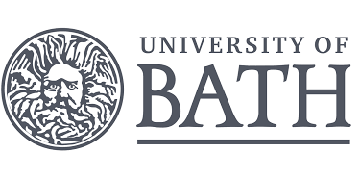University of Bath: Reform to Mental Health Act must prompt change in support for families
Family members of people with severe mental health challenges need greater support to navigate the UK’s care system following changes announced in yesterday’s Queen’s Speech, say the authors of a new study published in the British Journal of Social Work.
The research, conducted by social work and legal experts at the universities of Bath, Bristol, and Plymouth, analysed the experiences of family members who have acted as the ‘nearest relative’ in Mental Health Act assessments. These are people who have been entrusted to safeguard the interests of a person detained under the Mental Health Act 1983 (MHA).
The nearest relative role was introduced through the Mental Health Act 1959 and gives specific family members rights and powers during a Mental Health Act assessment, in which a person with a mental health problem may be detained against their will. This nearest relative role has been controversial because patients are not able to choose who they would like to act on their behalf.
People detained under the MHA are those judged to need treatment for a mental health disorder and be at risk of harm to themselves or others. Latest figures, for 2020/21, suggest that 53,239 people are recorded as having been detained in this way in the UK. This includes individuals with severe mental health conditions such as psychosis, serious depression, or dementia.
The Queen’s Speech, delivered on Tuesday, outlined government plans to reform the MHA. This is expected to include changes to the nearest relative role through a new nominated person role. This would offer individuals at risk of being detained greater say over who could represent them (including non-family members).
The research team says this will be an important step in reforming the nearest relative role which has undergone only minor revisions since first being introduced in 1959. But they add it must also be accompanied by extra support to help people caught up in mental health detentions deal with the experience.
Their findings reveal the heavy burden family members can experience when adult children, parents or other family members are detained under the MHA. Insights paint a picture of people unsure of how best to help relatives, frustrated with services and struggling to get the right support; as well as distress as someone is detained and anxiety about when they are released.
Participants interviewed for the research described a long journey of trying to obtain adequate mental health support, where they felt they were passed from pillar-to-post between services, up until circumstances tipped over the edge and the MHA was applied. One interviewee for the study said:
They just have their little platitudes that say, oh, you can call the crisis number, or you can call the police. They don’t actually know what that means. They tell people to do things that aren’t going to help because they think they’ve ticked the box.’ Others described their own feelings of disloyalty to family members and being unsure how best to support them and when to intervene to help them be discharged.
Another interviewee said:
It’s really hard because he’s obviously unwell, but he can’t see that and he wants – he probably sees me as being disloyal to him, in the fact that I won’t do something to get him out, because he doesn’t want to be there…’ The researchers suggest greater attention now needs to be paid to supporting carers who are involved in the compulsory detention process in this way.
Lead researcher Dr Jeremy Dixon from the Centre for the Analysis of Social Policy at the University of Bath explained: “The relatives in our research were keen to support their family members but found the experience of being involved in a Mental Health Act assessment very distressing. This was because they felt unsupported during the assessment process and felt uncertain about how best to advocate for their relative.”
Dr Kevin Stone from the University of Plymouth added: “Our findings indicate that nearest relatives need to be provided with more support to carry out their role effectively. For example, our participants complained about receiving poor quality information sheets and not being involved in plans about their relative’s future care.”
Professor Judy Laing from the University of Bristol Law School said: “While we support the Government’s plans to introduce a new nominated person role, this will not solve the problems which relatives experience. Appropriate training and targeted emotional support needs to be offered to people undertaking the role so that they can carry it out effectively.”

